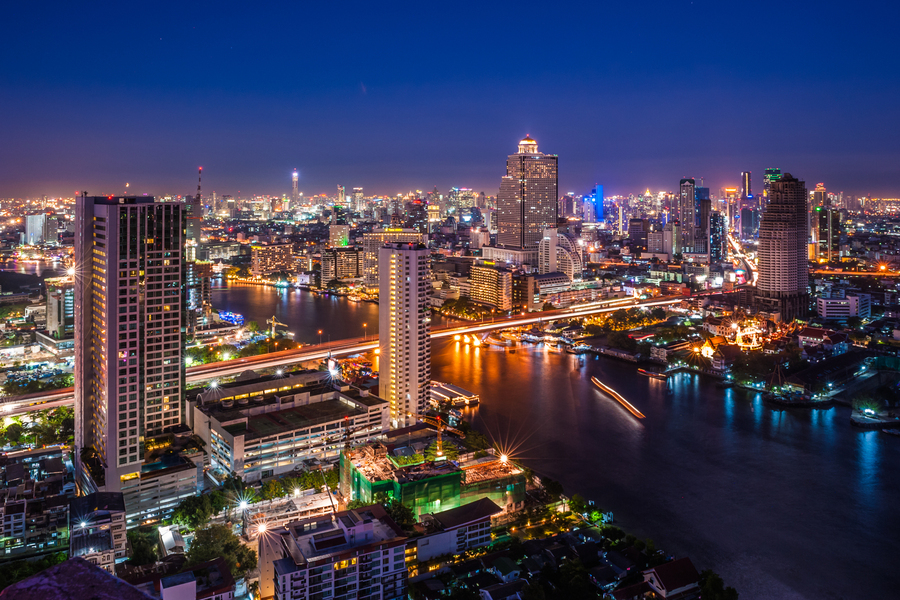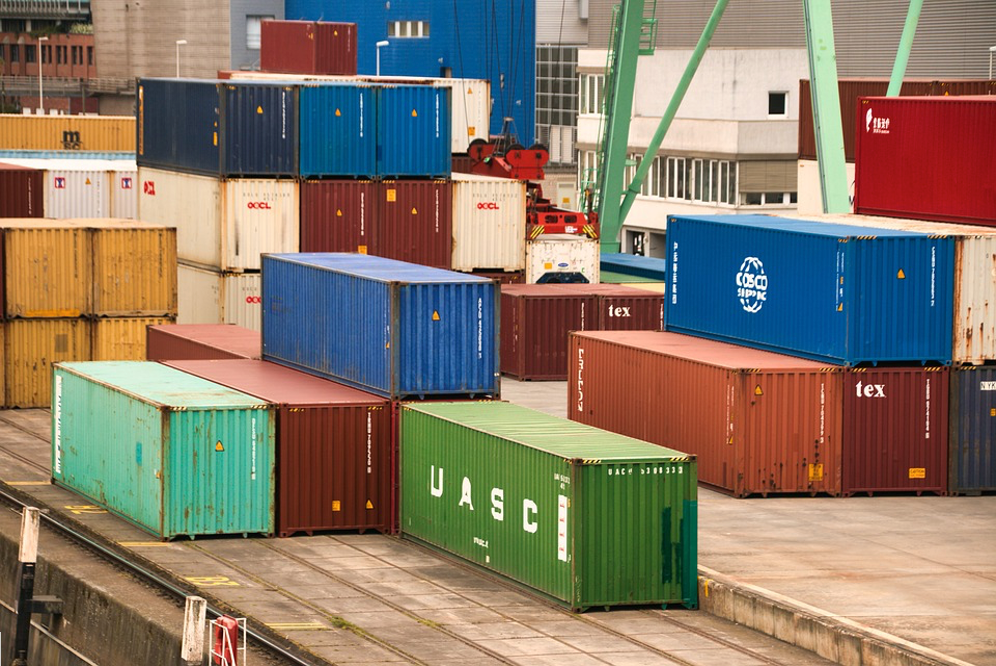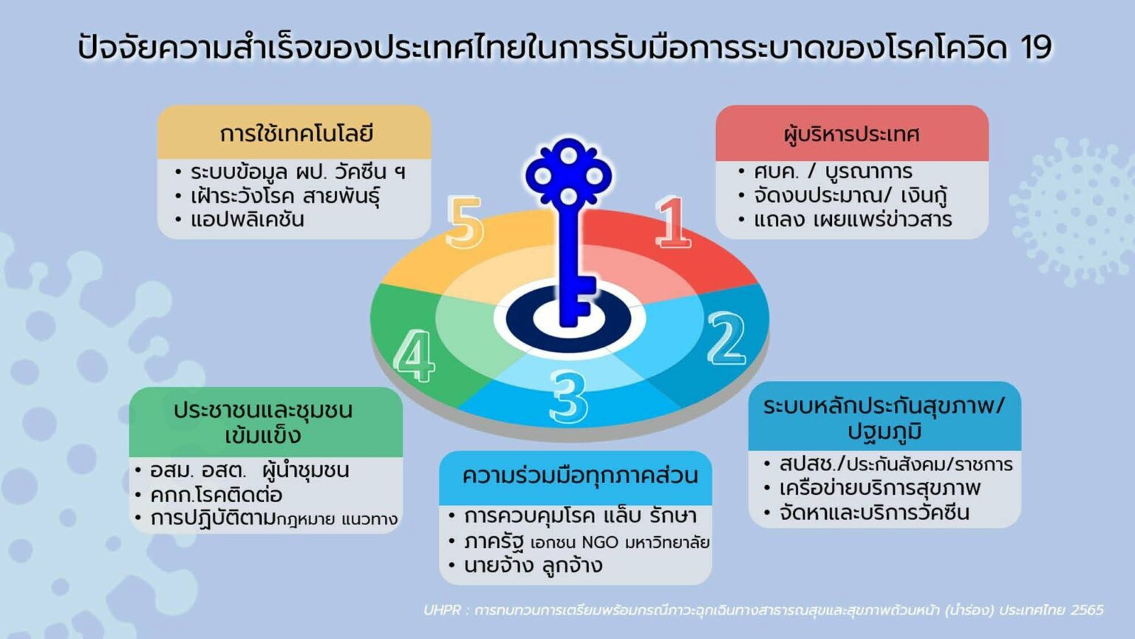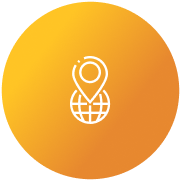
Why Thailand
(JUL22) Connecting hub

Thailand is the MICE connecting hub of Asia due to the optimal strategic location to connect ASEAN with Asia, and the development plan for Thai MICE industry structure that is developed under the cooperation of Thailand Convention & Exhibition Bureau (TCEB) and the regional alliances to develop 10 MICE cities of all regions nationwide. Further, the regional convention and exhibition bureaus are established in the four regions to execute the operations along with the regional government and private authorities to support the MICE events and organisers inclusively, perform the active actions within the region to strengthen the Thai MICE industry, and stimulate the sustainable growth to the region to become the connecting hub of Asia. TCEB collaborates with the provinces, associations, agencies, and local entrepreneurs closely to set the perception and create the jobs for all regions, and unlock the MICE business with the “restore, support, promote” strategy emphasizing the security of being the connecting hub and the benefits to revive the economy.
1. Strategic Location
- Exports
The Ministry of Commerce’s figures for April 2022 showed Thai exports valued at more than US$23 billion, representing the 14th month of continuous growth and up 9.9% on April 2021. For the first four months of 2022, Thai exports grew overall by 13.7% with consumables growing by 8.2% reflecting the importance of exports to the growth of the Thai economy. The government’s export promotion plan to push and facilitate exports has included unlocking barriers to the export of fruit to China, the reopening of the Saudi Arabian market, the promotion of environmentally-friendly production processes to accommodate changes in global trade expectations in the coming years particularly with the EU, and expediting negotiations on FTAs and mini-FTAs to increase opportunities and competitiveness for Thai entrepreneurs.

- Local Investment
In April 2022 the Foreign Business Operations Committee approved 50 new applications to invest in business in Thailand from foreigners, received through foreign business licence application channels and those requesting a foreign business certificate. These approvals consisted of 20 business licences and 30 business certificates with a total investment of Bt9,997 million, and the employment of 592 Thai nationals. Most of these licenced businesses comply with the government’s investment promotion policies, such as electronic commerce businesses, which are the driving force of the Thai economy
- Macro-economic Policy Management in 2022
The private investment promotion focusses on:
- Acceleration for entrepreneurs who have received approval, and issuance of promotion certificates during the period of 2019 – 2021 to invest in projects, particularly in targeted industries.
- Clearing obstacles to investment and business operations identified by foreign investors and entrepreneurs, including labour shortages in the manufacturing sector.
- Implementing pro-active investment promotion measures and facilitating processes to attract more investors in the targeted industries, as well as attracting potential investors from new countries.
- Promoting investment in the Eastern Economic Corridor (EEC) and driving special economic corridors in different regions.
- Driving investment in the development of economic areas and transportation infrastructure in accordance with established plans.
- Development of a skilled workforce to support industries focussed on technology and innovation, especially new targeted industries.
2. Easy Access Thailand enjoys a strategic location and serves as a gateway into the heart of Asia. Thailand has 38 airports, including seven international airports. In addition to 9 exhibition centres across Thailand, 10 MICE cities in Bangkok, Khon Kaen, Chiang Mai, Nakhon Ratchasima, Phitsanulok, Pattaya, Phuket, Songkhla, Surat Thani, and Udon Thani with the ability to organise a wide range of MICE events.
- Public Health and Wellness Emergencies Coping
The World Health Organisation has declared Thailand a model country in dealing with public health emergencies and universal health care in Asia. They point to five areas where lessons from Thailand’s successes can be applied in other countries:
- Support from the country’s top executives.
- The Thai public health system being strengthened by having a universal health insurance system.
- The interconnectedness between the government, private sector and civil society right down to community level.
- The fostering of participation from the population and local communities.
- Applying technology and innovation in decision-making.

- Convention & Exhibition Centres in Thailand
The Queen Sirikit National Convention Center is about to unveil its new look as “The Ultimate Inspiring World Class Event Platform for All” catering to all kinds of events. Its usable floor space has increased from 25,000 square metres to 300,000 square metres.
The venue will reopen in September 2022 and has been chosen as the venue for the Asia-Pacific Economic Cooperation Conference 2022 (APEC 2022) which will be hosted by Thailand in November.
The new-look Queen Sirikit National Convention Center will kick off with the Thailand Game Show 2022, the biggest gaming event in Southeast Asia, from 21 – 23 October. The event will feature two new zones: at the cutting edge of the virtual world will be the NFT Game & Metaverse Zone, and the Business Matching Zone which will support game publishers, game developers, game media, and game agencies. All sectors of the gaming industry will be gathered together in the one place offering opportunities and channels for business growth.

- Mega Projects
The Thai-Chinese high-speed rail network from Bangkok to Nong Khai aims to replace the current suburban and other rail systems, and will allow businesses fast access to the city. The network is the result of co-operation between the Thai and Chinese governments as part of the plan to connect the rail mass transit networks of China, Malaysia, Laos, and Vietnam with Thailand leading to social and economic benefits for all parties.
The Ministry of Transport is aware of the importance of this rail network connection project in helping spread economic prosperity throughout the region. It also values the opportunity to drive investment in infrastructure to stimulate the economy at all levels of society through the “Thai First” policy requiring the use of domestically-produced equipment and materials where possible to create jobs and support local industry. Such a policy also reduces the budget burden of having to import materials. Thailand is the 100% investor in the project which allows it to formulate strategy such as the implementation of the high-speed network as the country’s main passenger rail network.
3. New Development
- Communication System Development
Transportation leader Siemens Mobility unveiled four digital technologies as part of its “High-Speed, Big Data, Green Mobility” plan to elevate Bangkok’s rail system to international level and welcome the 5G era at the Asia Pacific Rail 2022 event in May of this year. The pilot Saijira-Khon Kaen double-track railway project highlights four innovations with respect to the urban and economic contexts, able to accommodate many types of travel and lift Thailand’s rail transportation network to world standard.
- Mobility-as-a-Service, or MaaS technology that is capable of analysing and transforming travel patterns allowing passengers to design their own travel routes.
- Railigent digital rail asset management system where AI analyses and plans repairs leading to a 15% reduction in maintenance costs.
- Innovative environmentally-friendly high-speed trains that can significantly reduce travel times, capable of top speeds of 360 kilometres per hour and can reduce energy consumption by 30%.
- The GCP 5000 model electronic rail barrier system that detects the movement of an approaching train and activates the alarm system in the rail barrier.

Photo credit: https://www.thansetakij.com
- Technology Development
The Chang – Sathorn Pier – Smart Pier Smart Connection
The Thai government places great importance on the development of the country’s transport infrastructure by using state-of-the-art technology in its road, water, rail, and air transportation to drive socio-economic development and improve the country’s competitiveness globally. The development of the public transportation system also adds to the quality of people’s lives through convenience and safety. The Ministry of Transport has a plan to develop and upgrade 29 smart piers along Bangkok’s Chao Phraya River from 2019 – 2024, and develop the aesthetics of the surrounds according to universal design principles including a modern service system. Additionally, it also promotes electric-powered passenger boats which are more environmentally, and user, friendly. It has also promoted water tourism, generating additional revenue for the country. After the completion of the pier redevelopments, the number of daily passengers is projected to rise to 53,000 by the year 2027.
- Human Resource Development
At the Second APEC Senior Officials Meeting held between 9 – 12 May 2022, Thailand joined the push for the APEC Human Resources Development Working Group meeting under the theme of “Shaping Smart Citizens with Digitalization and Eco-friendly Awareness” in line with the APEC 2022 theme of “Open. Connect. Balance.” The aim is to improve labour quality, education, and social protections through three networks: the Capacity Building Network, the Education Network, and the Labour and Social Protection Network, in three key areas -
- Adjusting guidelines to find new ways to enhance labour capacity to develop workers with skills that match market demands in this post-Covid era.
- Developing a workforce that is adaptable to change and new challenges, including moving into the digital age and transforming industries to be more environmentally aware, and sustainable.
- A policy to develop a sustainable education development policy that tackles the challenges of rapid change in today’s world, including the impact of AI-powered employment replacement, and creating policies that protect workers from employment changes, and promote gender equality.





